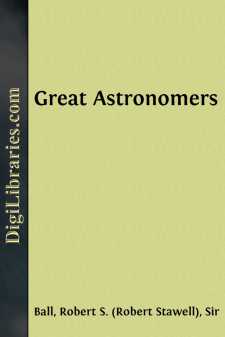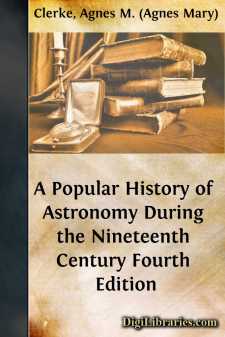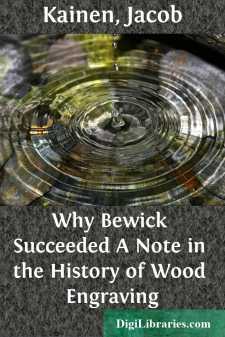History
- Africa 30
- Americas (North Central South West Indies) 50
- Ancient 68
- Asia 58
- Australia & New Zealand 8
- Canada 41
- Caribbean & West Indies 1
- Civilization 20
- Eastern Europe 12
- Europe 310
- Expeditions & Discoveries 60
- General
- Historical Geography 1
- Jewish 9
- Latin America 3
- Medieval 8
- Middle East 13
- Military 248
- Revolutionary 8
- Study & Teaching 5
- United States 353
- Western Europe 56
- World 13
General Books
Sort by:
Of all the natural sciences there is not one which offers such sublime objects to the attention of the inquirer as does the science of astronomy. From the earliest ages the study of the stars has exercised the same fascination as it possesses at the present day. Among the most primitive peoples, the movements of the sun, the moon, and the stars commanded attention from their supposed influence on human...
more...
INTRODUCTION We can distinguish three kinds of astronomy, each with a different origin and history, but all mutually dependent, and composing, in their fundamental unity, one science. First in order of time came the art of observing the returns, and measuring the places, of the heavenly bodies. This was the sole astronomy of the Chinese and Chaldeans; but to it the vigorous Greek mind added a highly...
more...
EMILY BRONTË. There are, perhaps, few tests of excellence so sure as the popular verdict on a work of art a hundred years after its accomplishment. So much time must be allowed for the swing and rebound of taste, for the despoiling of tawdry splendours and to permit the work of art itself to form a public capable of appreciating it. Such marvellous fragments reach us of Elizabethan praises; and we...
more...
by:
Jacob Kainen
The Contemporary View of Bewick After 1790, when his A general history of quadrupeds appeared with its vivid animals and its humorous and mordant tailpiece vignettes, he was hailed in terms that have hardly been matched for adulation. Certainly no mere book illustrator ever received equal acclaim. He was pronounced a great artist, a great man, an outstanding moralist and reformer, and the master of a...
more...
INTRODUCTION n every century for more than two thousand years, many men have owed their chief enjoyment of life to books. The bibliomaniac of today had his prototype in ancient Rome, where book collecting was fashionable as early as the first century of the Christian era. Four centuries earlier there was an active trade in books at Athens, then the center of the book production of the world. This...
more...
INTRODUCTION. The most valuable part of a nation's history portrays its institutions of learning and religion. The alumni of a college which has moulded the intellectual and moral character of not a few of the illustrious living, or the more illustrious dead,—the oldest college in the valley of the Connecticut, and the only college in an ancient and honored State,—would neglect a most fitting...
more...
by:
Scott Nearing
I. THE NEW ECONOMIC LIFE 1. The Historic Present The knell of a dying order is tolling. Its keynote is despair. Gaunt hunger pulls at the bell-rope, while dazed humanity listens, bewildered and afraid. Uncertainty and a sense of futility have gripped the world. They are manifesting themselves in unrest, disillusionment, the abandonment of ideals, opportunism, and a tragic concentration on the life of...
more...
ENGLISH A COMPOSITE LANGUAGE “A very slight acquaintance with the history of our own language will teach us that the speech of Chaucer’s age is not the speech of Skelton’s, that there is a great difference between the language under Elizabeth and that under Charles the First, between that under Charles the First and Charles the Second, between that under Charles the Second and Queen Anne; that...
more...
CHAPTER I. INTRODUCTORY. Social organisation. Associations in the lower stages of culture. Consanguinity and Kinship. The Tribe. Kinship groups; totem kins; phratries. The passage from what is commonly termed savagery through barbarism to civilisation is marked by a change in the character of the associations which are almost everywhere a feature of human society. In the lower stages of culture, save...
more...
PREFACE At the suggestion of the Cambridge Philosophical Society, the Syndics of the University Press decided in March, 1908, to arrange for the publication of a series of Essays in commemoration of the Centenary of the birth of Charles Darwin and of the Fiftieth anniversary of the publication of "The Origin of Species". The preliminary arrangements were made by a committee consisting of the...
more...











